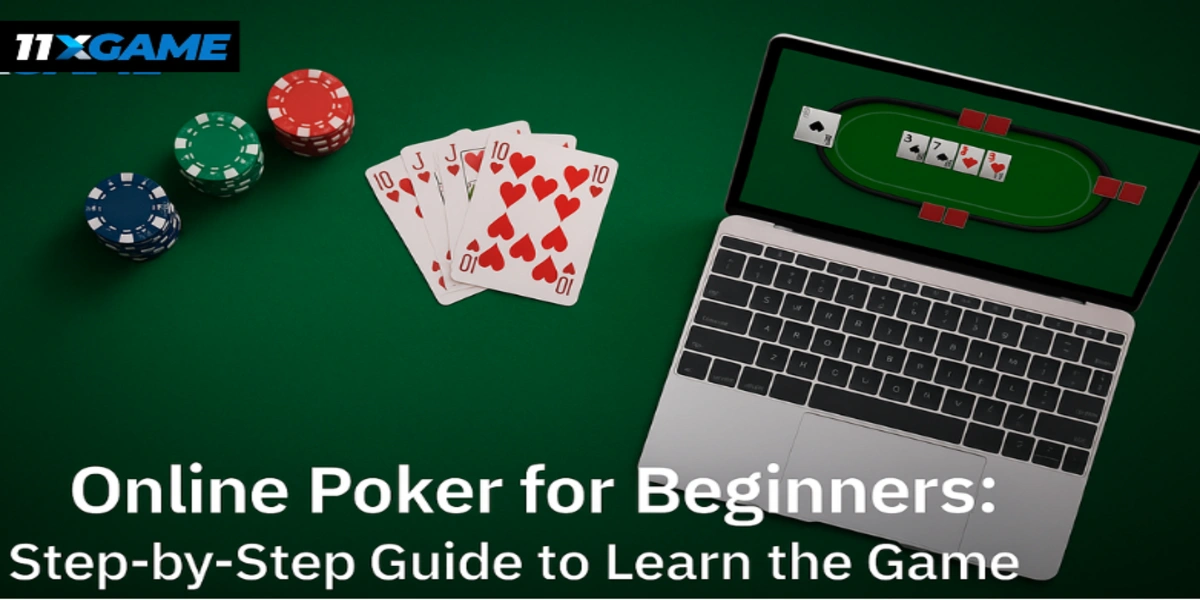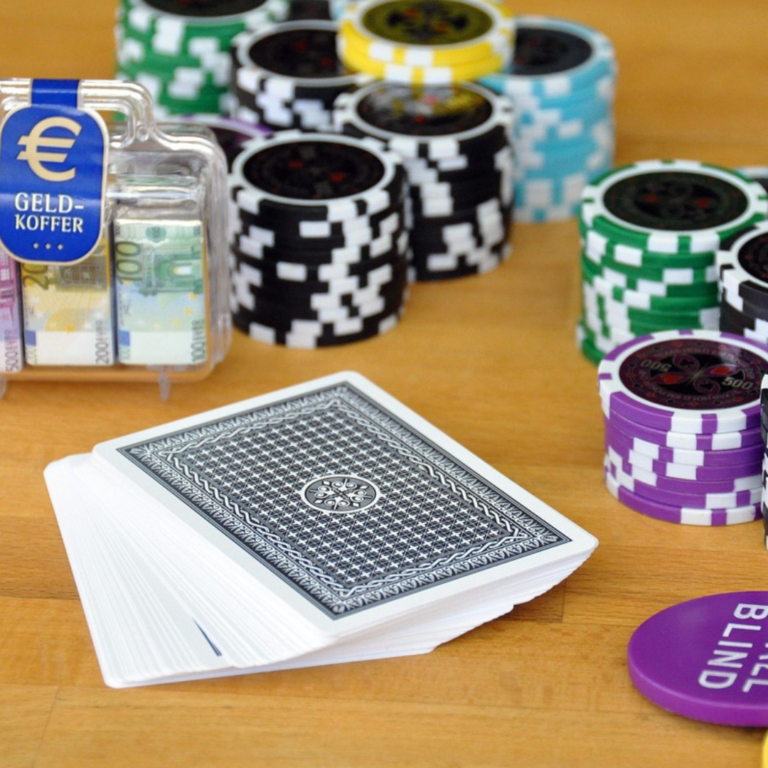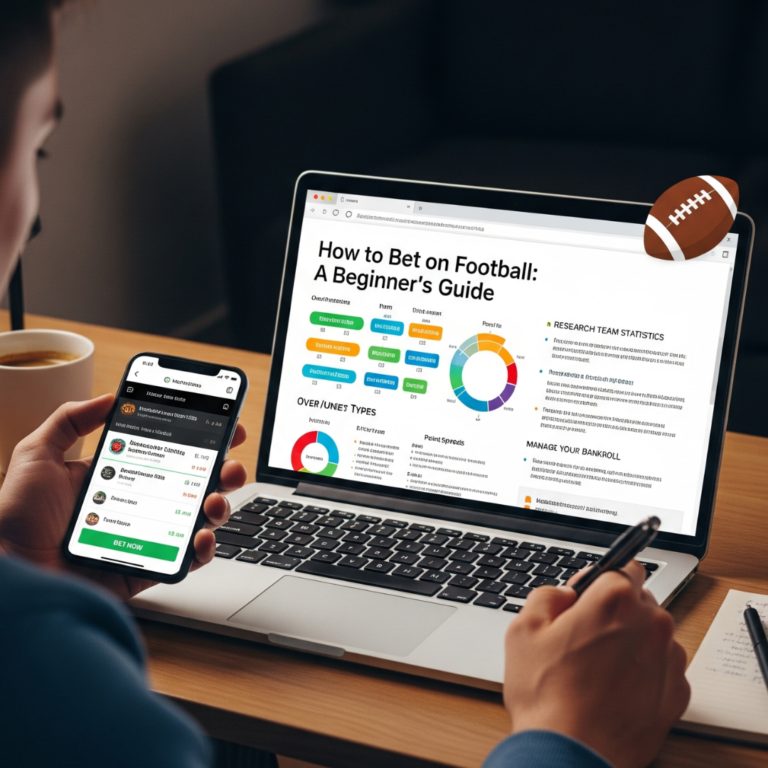Online Poker for Beginners: Step-by-Step Guide to Learn the Game
Introduction
Poker is one of the world’s most popular card games, enjoyed both at traditional casino tables and in digital formats. While it has a reputation for strategy and excitement, poker can feel intimidating for new players. The online version adds another layer of challenge because you are playing on a digital platform rather than face-to-face.
This guide is designed to help beginners understand online poker step by step. We’ll cover the basic rules, essential terms, the flow of the game, and beginner-friendly strategies to get started in a safe and smart way.
Understanding the Basics of Poker
Before you begin, it’s important to learn the foundations of the game. While there are many poker variations, Texas Hold’em is the most widely played online and is usually recommended for beginners.
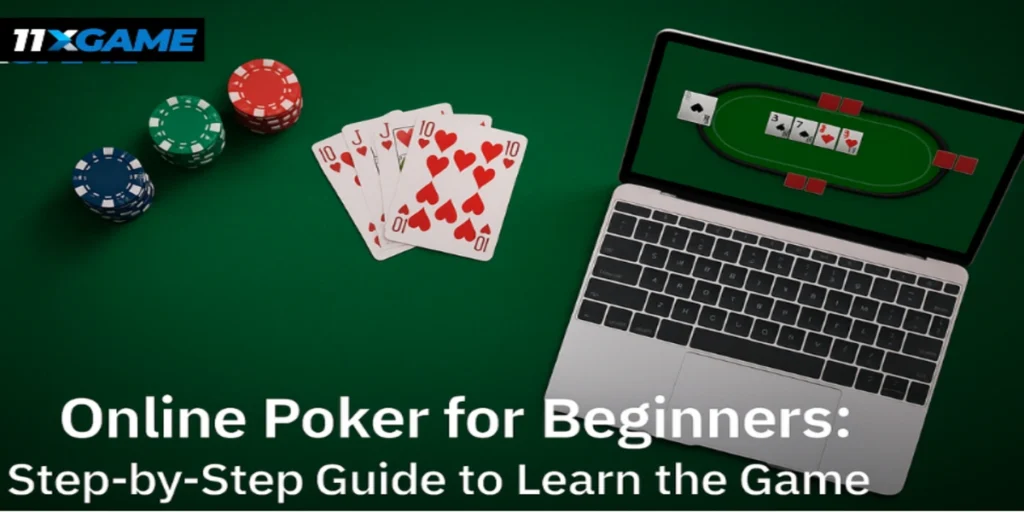
Hand Rankings in Poker
Poker is all about creating the best possible five-card hand. Here’s the order of hands, from strongest to weakest:
- Royal Flush – A, K, Q, J, 10 of the same suit.
- Straight Flush – Five consecutive cards of the same suit.
- Four of a Kind – Four cards of the same rank.
- Full House – Three of a kind plus a pair.
- Flush – Five cards of the same suit (not consecutive).
- Straight – Five consecutive cards of mixed suits.
- Three of a Kind – Three cards of the same rank.
- Two Pair – Two sets of pairs.
- One Pair – Two cards of the same rank.
- High Card – If no hand is formed, the highest card wins.
Key Poker Terms You Must Know
- Blinds: Forced bets posted before the cards are dealt.
- Flop: The first three community cards dealt face-up.
- Turn: The fourth community card.
- River: The fifth and final community card.
- Check: To pass the action without betting.
- Raise: To increase the bet.
- Fold: To discard your hand and exit the round.
Step-by-Step Guide to Playing Poker Online
Step 1: Learn the Rules Thoroughly
Start with understanding the structure of the game. Learn how the blinds work, how betting rounds flow, and what conditions lead to winning a pot. Beginners often jump in without mastering the rules, which leads to confusion and mistakes.
Step 2: Understand the Betting Rounds
A typical Texas Hold’em hand has four betting stages:
- Pre-Flop – Players receive two hole cards.
- Flop – Three community cards are dealt.
- Turn – A fourth card is added.
- River – The final card is revealed.
At each stage, players choose to check, bet, call, raise, or fold depending on their hand and confidence.
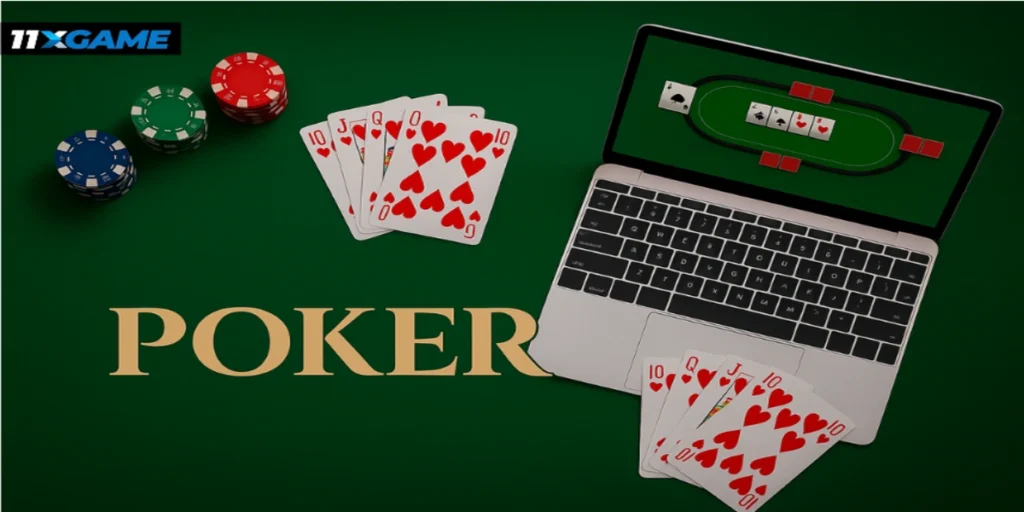
Step 3: Practice with Free Tools
Instead of directly risking money, practice with free versions of online poker games or apps that let you play for virtual chips. This will help you get comfortable with the speed of online play, the interface, and decision-making without stress.
Step 4: Start Small and Track Your Progress
Once you understand the basics, begin with very small stakes (if allowed) or low-pressure environments. Track your progress after each session — note where you made mistakes and what strategies worked. This helps you develop discipline and improve gradually.
Beginner Tips to Avoid Mistakes in Online Poker
- Don’t Play Every Hand – New players often feel the urge to join every round. Learn to fold weak hands early.
- Learn to Manage Your Bankroll – Set a budget for your poker sessions. Never play with money you can’t afford to lose.
- Avoid Emotional Decisions – Don’t let frustration or excitement dictate your bets. Stay calm and calculated.
- Pay Attention to Betting Patterns – Since you can’t see your opponents physically, observe how they bet. Patterns often reveal hand strength.
- Start with Simple Strategies – Don’t overcomplicate. Focus on learning hand strengths and positional play before diving into advanced tactics.
Safe and Responsible Gaming
Poker is a game of skill combined with chance. Always approach online poker with responsibility. Treat it as entertainment, not a way to earn guaranteed income. Limit your playtime, set financial boundaries, and never chase losses. Responsible gaming ensures that poker remains enjoyable.
(This article is for informational purposes only. Gambling involves risk. Please bet responsibly.)
Always Check local laws before playing & follow the law.
Conclusion
Learning online poker for beginners is about mastering the fundamentals, practicing responsibly, and developing discipline over time. Start with the rules, practice in low-pressure environments, and build your confidence gradually. With patience and smart play, poker becomes not only enjoyable but also a mentally stimulating game.
FAQs on Online Poker for Beginners
Q1: Is online poker different from traditional poker?
The rules remain the same, but online poker is faster, has digital interfaces, and requires quick decision-making.
Q2: Which poker variation should beginners start with?
Most experts recommend Texas Hold’em because it is the most popular and easiest to learn.
Q3: Can I learn poker without playing for money?
Yes, many free versions and practice apps are available that allow you to play with virtual chips.
Q4: Do I need advanced math skills to play poker?
No, but understanding basic odds and probabilities will help you make smarter decisions.
“For more educational resources and responsible gaming tips, visit 11xGame to stay informed and safe while enjoying your favorite sports.”
